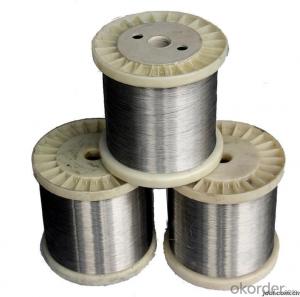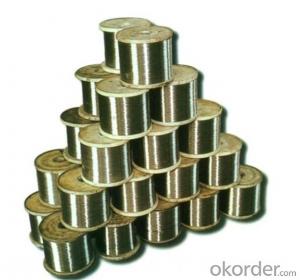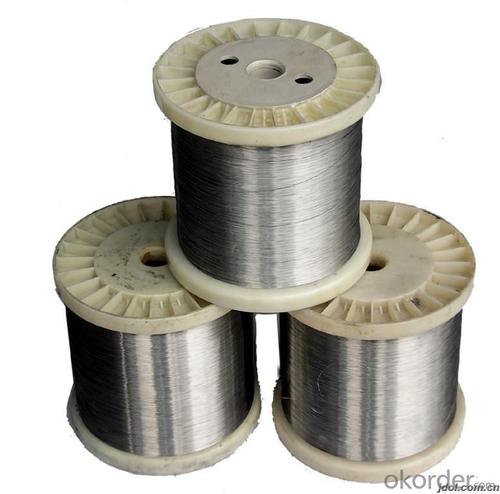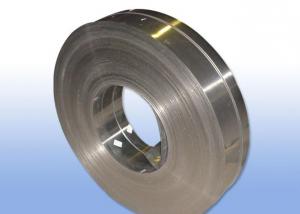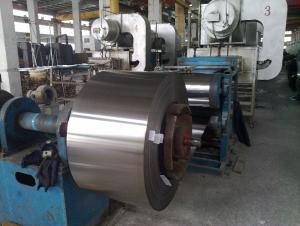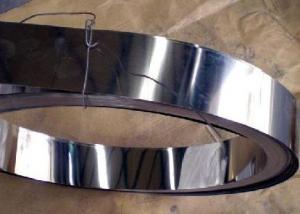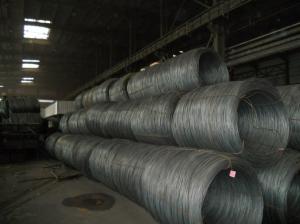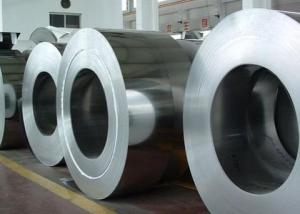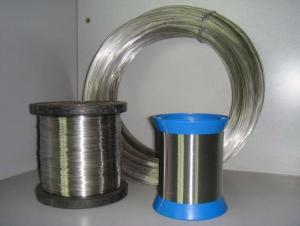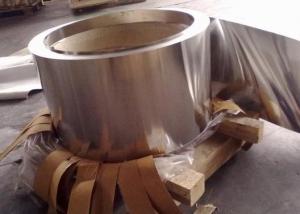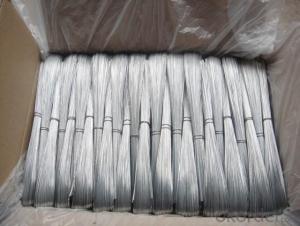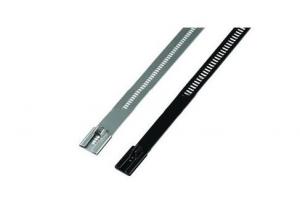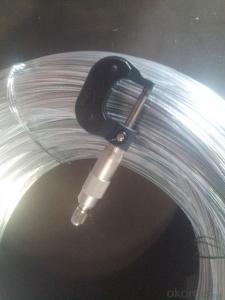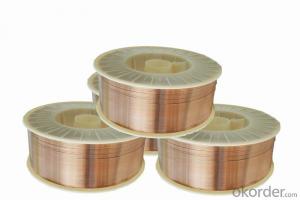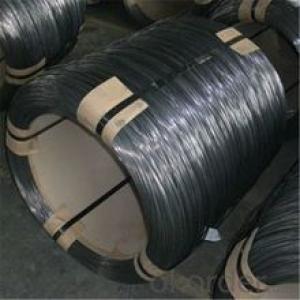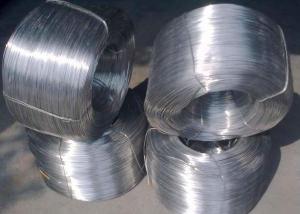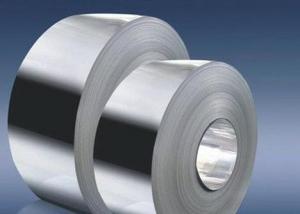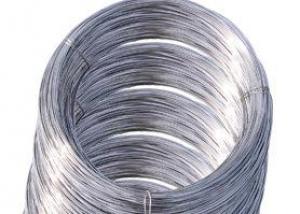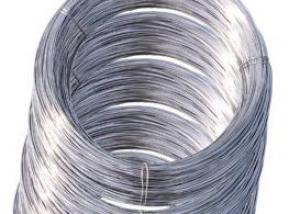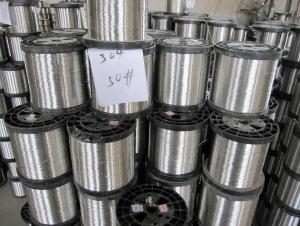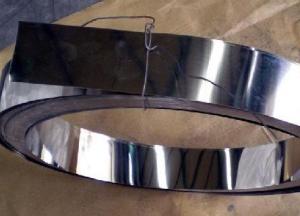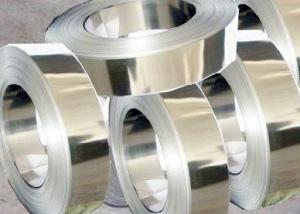stainless steel wire rope for building industry
- Loading Port:
- Qingdao
- Payment Terms:
- TT OR LC
- Min Order Qty:
- 1 m.t.
- Supply Capability:
- 1000 m.t./month
OKorder Service Pledge
Quality Product, Order Online Tracking, Timely Delivery
OKorder Financial Service
Credit Rating, Credit Services, Credit Purchasing
You Might Also Like
hot selling 8x19 stainless steel wire rope
1:Description
| Product Detail | |
| Wire diameter | 0.03mm-2.0mm |
| Grade | 200 series,300 series,400 series |
| Standard | ASTM,EN. DIN,JIS |
| Surface | Bright,Cloudy,Plain, Black, as your request |
| Type | Spring, Welded,Tig,Migetc soft and hard |
| Tensile Strength | 630N/mm2 —900N/mm2 |
| Production Process |
|
| Packing | Plastic film inside and woven bag or hession cloth outside ,25kg/50kg each coil ,25ton/20'' FCL |
| Features |
|
- Q: Can stainless steel wire be used for wire knitting needles?
- Yes, stainless steel wire can be used for wire knitting needles. Stainless steel is a strong and durable material that can withstand the tension and friction of knitting. It is also resistant to rust and corrosion, making it a popular choice for knitting needles. Stainless steel wire knitting needles can provide a smooth and consistent knitting experience, ensuring that stitches glide easily along the needle. Additionally, stainless steel is a hypoallergenic material, making it suitable for individuals with sensitive skin or allergies. Overall, stainless steel wire is a suitable and reliable material for wire knitting needles.
- Q: Can stainless steel wire be used in high temperature applications?
- Yes, stainless steel wire can be used in high temperature applications. Stainless steel is known for its excellent heat resistance properties, making it suitable for use in environments with elevated temperatures. It can withstand high temperatures without losing its strength or durability, making it a reliable choice for various industrial applications that involve heat.
- Q: How does the cost of stainless steel wire compare to other materials?
- Compared to other materials, stainless steel wire typically falls within the mid to high range in terms of cost. While it may be more expensive than materials like aluminum or carbon steel, stainless steel wire offers unique benefits that justify its higher price. Stainless steel is renowned for its exceptional corrosion resistance, durability, and strength, which make it a preferred choice in industries such as construction, automotive, and aerospace. Moreover, stainless steel wire exhibits high resistance against heat, chemicals, and wear, ensuring long-term usage and reduced maintenance expenses. Hence, despite the higher upfront cost, stainless steel wire proves to be a valuable investment in various applications due to its long-term value and performance.
- Q: Can stainless steel wire be used for aircraft components?
- Yes, stainless steel wire can be used for aircraft components. Stainless steel is known for its high strength, corrosion resistance, and ability to withstand extreme temperatures, which makes it a suitable material for various aircraft applications. Stainless steel wire can be used in the construction of structural components, such as cables, ropes, and springs, as well as in electrical and mechanical systems. It is often used in critical areas where reliability and durability are paramount, such as in landing gear, control systems, and engine components. Additionally, stainless steel wire is lightweight compared to other metals, which is crucial in aircraft design to minimize weight and maximize fuel efficiency. Overall, stainless steel wire is a versatile and reliable material for aircraft components.
- Q: Can stainless steel wire be used for springs in the manufacturing industry?
- Yes, stainless steel wire can be used for springs in the manufacturing industry. Stainless steel is a strong and durable material with excellent corrosion resistance, making it an ideal choice for springs that need to withstand heavy loads or operate in harsh environments. Its high tensile strength ensures that the springs can retain their shape and provide the necessary elasticity for various applications. Additionally, stainless steel springs are often preferred due to their resistance to rust and staining, making them suitable for use in industries such as automotive, aerospace, and medical, where reliability and longevity are crucial.
- Q: What are the different surface textures available for stainless steel wire?
- Depending on the desired application and aesthetic preference, stainless steel wire offers a range of surface textures. Here are some commonly used options: 1. The bright surface texture is the most basic and widely used. It boasts a smooth and shiny finish without any additional treatments or coatings. 2. For a slightly duller appearance, the matte finish is achieved through sandblasting or acid etching. This process creates a more subdued and matte look. 3. The brushed finish involves using abrasive materials to create parallel lines or patterns on the wire surface. This technique gives the wire a unique textured appearance. 4. To achieve a mirror-like finish, the wire is polished to a high shine, resulting in a reflective surface similar to that of a mirror. 5. For added texture and properties, stainless steel wire can be coated with various materials. Nylon or PVC coatings, for example, can provide extra corrosion resistance or insulation capabilities. 6. The knurled finish involves creating raised diamond-shaped or spiral patterns on the wire surface. This texture improves grip and is beneficial in applications where easy handling is necessary. These diverse surface textures cater to a wide range of applications, including architectural design, jewelry making, kitchenware, and industrial uses. The choice of surface texture depends on specific requirements such as appearance, functionality, and performance characteristics needed for the stainless steel wire.
- Q: What are the common uses of stainless steel wire in the water treatment industry?
- Various purposes in the water treatment industry rely heavily on the utilization of stainless steel wire. A popular application involves the construction of filtration systems, where stainless steel wire mesh screens are commonly employed to separate solid particles from water during the filtration process. The exceptional corrosion resistance of stainless steel ensures that the wire remains intact when exposed to water or chemicals, making it the perfect choice for long-term usage in water treatment facilities. Another significant role of stainless steel wire in the water treatment industry lies in the production of filter cartridges. These cartridges serve the purpose of eliminating impurities and contaminants from water. The flexibility and strength of stainless steel wire facilitate the creation of durable and efficient filter cartridges that can endure high pressure, maintain their shape, and remain intact over time. Additionally, stainless steel wire is also extensively used in the construction of water treatment equipment such as pumps and valves. These crucial components necessitate materials capable of withstanding the harsh conditions experienced during water treatment processes, including exposure to chemicals, high temperatures, and pressure. Stainless steel wire offers the requisite strength, corrosion resistance, and durability required for these applications, ensuring the dependable and efficient operation of water treatment systems. Furthermore, stainless steel wire finds application in the production of screens for intake structures and water intakes. These screens effectively prevent unwanted materials such as debris and algae from entering water treatment facilities, thereby safeguarding the equipment and preserving the efficacy of the treatment process. Overall, stainless steel wire stands as a versatile and indispensable material in the water treatment industry. Its corrosion resistance, durability, and strength render it suitable for a wide range of applications, encompassing filtration systems, filter cartridges, equipment construction, and intake screens. By harnessing the potential of stainless steel wire, the water treatment industry can guarantee the effective and efficient treatment of water, thereby contributing to the provision of clean and safe water for various purposes.
- Q: What are the different wire diameter tolerances for stainless steel wire?
- The wire diameter tolerances for stainless steel wire can vary depending on the specific grade and application. Generally, the wire diameter tolerances for stainless steel wire range from +/- 0.0002 inches to +/- 0.002 inches. However, it is important to note that these tolerances may differ based on the specific manufacturing process and the intended use of the wire. In some cases, tighter tolerances may be required for critical applications that demand precise measurements. Therefore, it is crucial to consult the manufacturer or supplier to determine the exact wire diameter tolerances for specific stainless steel wire materials.
- Q: Can stainless steel wire be used for pet enclosures?
- Indeed, pet enclosures can utilize stainless steel wire. This material, known for its strength and durability, has the ability to withstand harsh weather conditions and prevent corrosion, thereby making it appropriate for outdoor usage. Furthermore, it is a secure choice for pet enclosures since it poses no danger of harm or toxicity to animals. Moreover, stainless steel wire is frequently employed in pet enclosures due to its resistance to being chewed through by pets, ensuring their safety and confinement.
- Q: Is stainless steel wire suitable for agricultural fencing?
- Yes, stainless steel wire is suitable for agricultural fencing. It offers durability, resistance to corrosion, and strength, making it ideal for withstanding harsh weather conditions and ensuring long-lasting performance in agricultural settings.
Send your message to us
stainless steel wire rope for building industry
- Loading Port:
- Qingdao
- Payment Terms:
- TT OR LC
- Min Order Qty:
- 1 m.t.
- Supply Capability:
- 1000 m.t./month
OKorder Service Pledge
Quality Product, Order Online Tracking, Timely Delivery
OKorder Financial Service
Credit Rating, Credit Services, Credit Purchasing
Similar products
Hot products
Hot Searches
Related keywords
